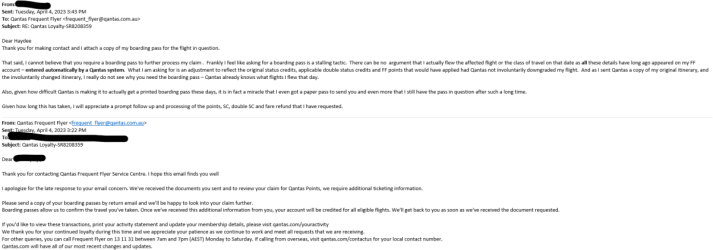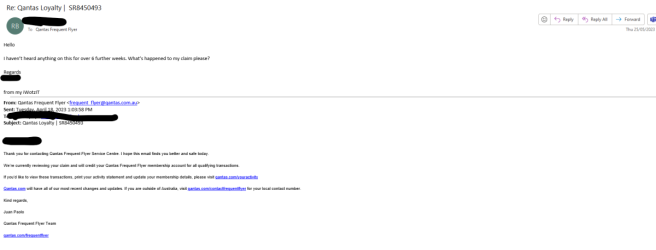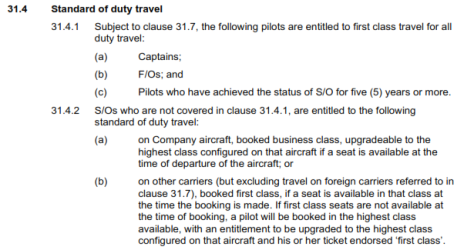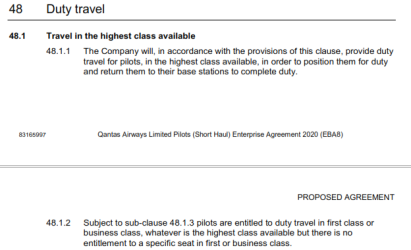Ambo
Intern
- Joined
- Feb 14, 2015
- Posts
- 68
You're missing the point. No one is saying Qantas should violate the EBA*. But the situation simply shouldn't exist in the first place. People in this thread are sugggesting:
* Qantas should operate in a manner such that this is an extremely rare situation; i.e. having enough standby pilots in all major ports, planning most deadhead moves well in advance
* If there is no alternative, Qantas must come up with fairer ways such as voluntary downgrades for market based compensation (i.e. keep increasing the compensation until even Donald Trump would take it.)
* Qantas should try to renegotiate the EBA to make the right to business class less strict on short-haul flights (I understand not all would agree, but it's an option), given it's unlikely to actually be a "safety issue."
* Australia should implement fairer compensation schemes for all such issues, along the lines of US DOT's denied boarding rules or EU 261. This is the real crux of the matter.
* I would also wonder if the EBA is quite as strict as people are making it out to be. What is the actual contractual remedy if Qantas is forced to fly a deadhead pilot in Economy class? It's not like someone's going to gaol for a "violation of federal law." I suspect the actual impact will might well be elsewhere, i.e. the deadheading flight in economy might count as paid duty time rather than rest time or something like that.
I never said QANTAS should be able to do what it does.
In a previous post, I said the conditions of carriage weren't great and that better compensation should be provided.
But if people are going to say that the Conditions of Carriage supersede the EBA, when they don't, then I'm going to reinforce that in the current language, the EBA supersedes the conditions of carriage.
The latest penalty handed out for breach of the EBA was $1.2 million I believe which included penalties and compensation to the affected parties.



















